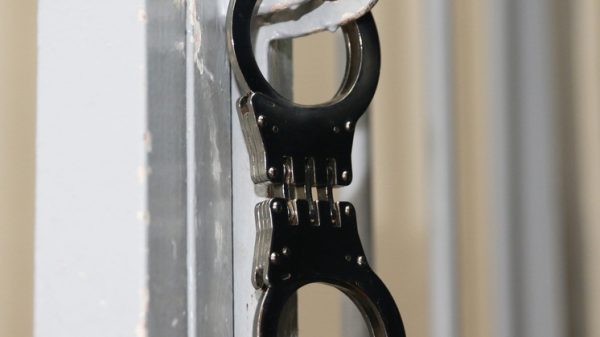A new network of immigration detention units for women is being quietly planned by the Home Office, contrary to previous pledges to reform the system and reduce the number of vulnerable people held.
An initial detention centre, based in County Durham on the site of a former youth prison, will open for female asylum seekers this autumn.
In addition to the facility near Consett, Home Office officials told asylum groups last week they were considering a number of “smaller capacity detention units” for women around the UK, though it is unclear if the notorious Yarl’s Wood immigration removal centre in Bedfordshire would be among them.
Alphonsine Kabagabo, director of the charity Women for Refugee Women, called the creation of a detention centre in the north-east a “betrayal of previous commitments made by ministers”.
Separately, a pioneering pilot scheme to ensure vulnerable women could live in the community instead of being detained appears to have quietly been wound down by the Home Office and will close next month.
The developments undermine attempts by the former immigration minister Caroline Nokes to reform the system. In 2019 Nokes vowed to introduce schemes that would reduce numbers and “support vulnerable women outside detention”.
The home secretary, Priti Patel, also appeared to acknowledge that the asylum system adversely affected women, telling the most recent Tory party conference it was “elbowing women and children in need to the side, trampling over the weak”.
Supported by the UNHCR, the Home Office launched a scheme in Newcastle designed to ensure women seeking asylum could be spared detention. Yet it has emerged that the Action Access pilot for women who would otherwise have been held inside Yarl’s Wood is being scrapped.
The current immigration minister, Chris Philp, has confirmed in a parliamentary answer he will “conclude” the initiative next month despite admitting that the pilot’s success would subsequently be evaluated over the summer.
Home Office officials also revealed last week, according to sources, that the department had cancelled two other pilot schemes offering an alternative to detention.
Agnes Tanoh, who was held in detention at Yarl’s Wood for three months and has launched an online petition against the new centre, said: “The Home Office said it would make changes so fewer people are locked up. I thought change was coming, I allowed myself to feel some hope.”
During the first lockdown last year Yarl’s Wood was emptied of its 400 women and repurposed to hold Channel migrants, prompting some relief for campaigners, who point to research indicating that many detainees are fleeing abuse, sexual violence and trafficking.
The new removal centre on the site of the former Medomsley detention centre is understood to have capacity for 85 women.
Owain Gardner, spokesperson for a local campaign against the centre, said it had received no guarantee children would not be housed there. “There has been no consultation at all with the local people or apparently the council,” he added.
Ali McGinley, director of the Association of Visitors to Immigration Detainees, said the opening of a centre was “symbolic” of a worrying change in direction.
“Previous home secretaries made a series of promises which now seem to be being tossed aside,” she said.
During a meeting last week Home Office officials revealed they were also planning to open an unspecified number of small detention units for women in existing men’s immigration removal centres, though they did not disclose a timescale or locations.
“They said that they are planning to open some smaller capacity units for women in existing IRCs [immigration removal centres] for what they called ‘flexibility’,” said a source present at the meeting.
These, they added, appeared to be in addition to existing units at Dungavel and Colnbrook detention centres.
Kabagabo said: “Most of the women we have worked with who have been in immigration detention are survivors of sexual violence and torture. Locking them up has a devastating effect on their mental health.”
Britain’s immigration detention: how many people are locked up?
Read more
Tanoh added: “Women become depressed and suicidal in detention. I don’t want to see this happen to any of my sisters.”
Philp confirmed plans were being finalised for a new detention centre in County Durham. He said: “The public rightly expects us to maintain a robust immigration system and detention plays a crucial role in this.
“We are committed to making sure people with no entitlement to be in the UK, including people with serious criminal convictions, are removed.”

























































Свежие комментарии